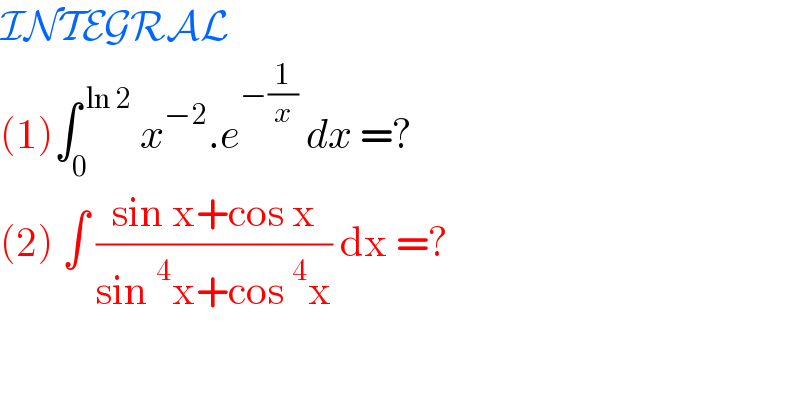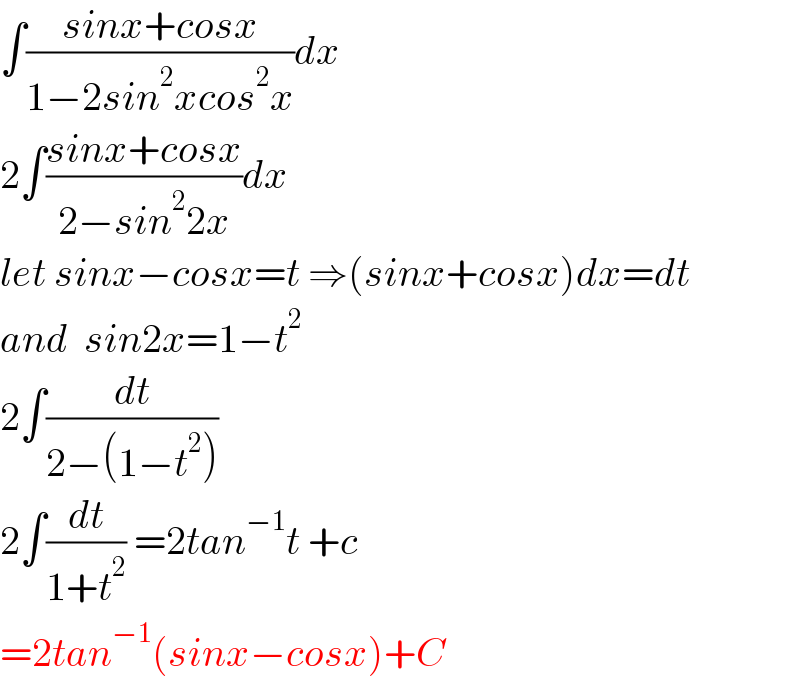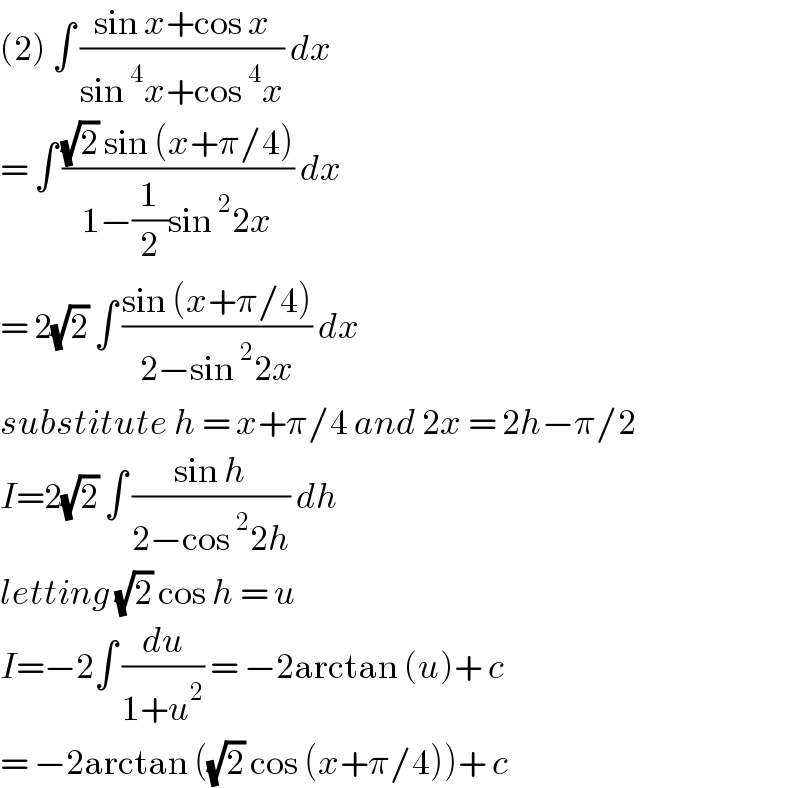
Question and Answers Forum
Question Number 134636 by bobhans last updated on 06/Mar/21

Answered by benjo_mathlover last updated on 06/Mar/21
![(1) ∫_0 ^(ln 2) (e^(−(1/x)) /x^2 ) dx = ∫_0 ^(ln 2) e^(−(1/x)) d(−(1/x)) = lim_(p→0) [ e^(−(1/x)) ]_p ^(ln 2) = e^(−(1/(ln 2))) −e^(−∞) = e^(−(1/(ln 2))) = (1/( (( e))^(1/(ln 2 )) ))](Q134642.png)
Answered by rs4089 last updated on 06/Mar/21

Answered by john_santu last updated on 06/Mar/21

Answered by mathmax by abdo last updated on 27/Mar/21
![1) we have (d/dx)(e^(−(1/x)) ) =(1/x^2 )e^(−(1/x)) ⇒ ∫_0 ^(ln2) x^(−2) e^(−(1/x)) ex =[e^(−(1/x)) ]_0 ^(ln2) =e^(−(1/(ln2))) −0 =e^(−(1/(ln2)))](Q136856.png)
